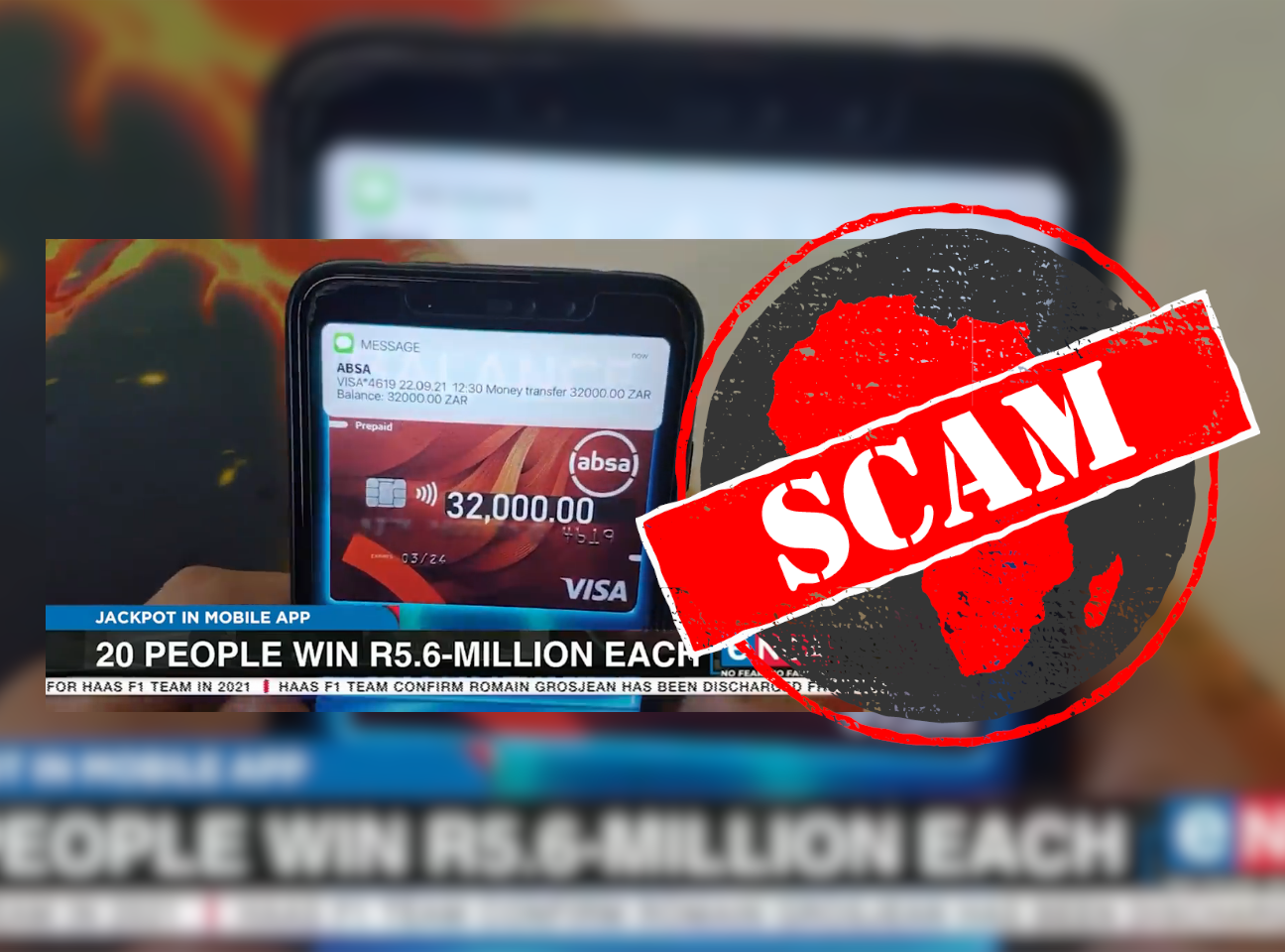A video posted on Facebook in June 2022 appears to show footage from South Africa’s 24-hour TV news channel eNCA. It describes how people can win millions of rands in a betting game by downloading a phone app and depositing a small amount of money.
It begins with real footage of an eNCA newsroom, from 2020. A presenter announces that 20 South Africans won R5.6 million each in the national lottery.
The video then shows an apparent winner surrounded by large piles of money. A voice, with the robotic sound of a text-to-speech generator, describes how a man won a betting game after downloading a phone app he saw in a Facebook advert.
The voice says the man “deposited R20 into the mobile app account” and “with just three bets of R7 each, he won a total of R5 million”.
“He received the money on his bank card within 10 minutes and could not believe his eyes,” the voice claims.
The clip has been viewed nearly 10,000 times so far. But is it really by eNCA? We looked into it.

Video has no affiliation with eNCA
John Bailey, eNCA’s managing editor, told Africa Check that the news channel hadn’t produced the video. It’s fake.
The Facebook page that posted the video uses eNCA’s logo as a profile picture, but has no affiliation with the channel.
Tip: Scams posing as quick money-making schemes are common on Facebook and other social media sites. A telltale sign of a scam is when it asks you to pay money to get some benefit. Be wary of these kinds of posts, and take a careful look at their page or account.
If it looks too good to be true, it’s probably a scam.
To learn more, see Africa Check’s guide to spotting Facebook scams.
Republish our content for free
For publishers: what to do if your post is rated false
A fact-checker has rated your Facebook or Instagram post as “false”, “altered”, “partly false” or “missing context”. This could have serious consequences. What do you do?
Click on our guide for the steps you should follow.
Publishers guideAfrica Check teams up with Facebook
Africa Check is a partner in Meta's third-party fact-checking programme to help stop the spread of false information on social media.
The content we rate as “false” will be downgraded on Facebook and Instagram. This means fewer people will see it.
You can also help identify false information on Facebook. This guide explains how.


Add new comment